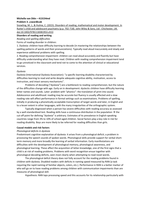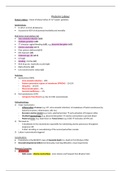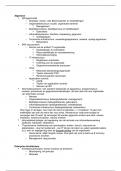Lecture notes
Unit 1- Task 3
- Institution
- OCR
In this document I explain strategies to ensure a person-centered approach in health, social care or child care environments. I also analyse how a person-centered approach supports the building of positive relationships in health, social care or child care environments.
[Show more]













